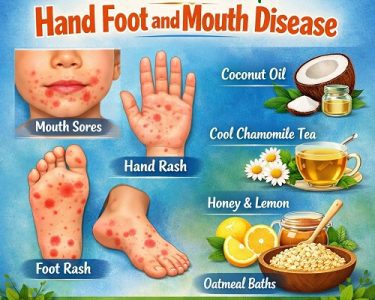Bronchiectasis: Breathing Easier
Bronchiectasis affects your airways, causing them to widen and become scarred. This makes it harder for you to clear mucus, leading to repeated infections and inflammation. While this condition can be challenging, you can manage it effectively and live a full life. This article will help you understand bronchiectasis, its causes, your treatment options, and how you can take an active role in your care. Natural Treatment for Bronchiectasis is a best way that help you in the cure of bronchiectasis.
What Exactly is Bronchiectasis?
Imagine your airways as a series of branching tubes, much like a tree. In bronchiectasis, some of these tubes become permanently damaged and enlarged. This creates pockets where mucus can build up, becoming a breeding ground for bacteria. When bacteria grow, you get infections, which further damage your airways, creating a cycle of infection and inflammation.
Related Article: 10 Powerful Bronchiectasis Remedies That Will Transform Your Breathing!
What Causes Bronchiectasis?
You might wonder why some people develop bronchiectasis. Often, it’s a result of previous lung infections, such as severe pneumonia, tuberculosis, or whooping cough. Sometimes, underlying conditions like cystic fibrosis, primary ciliary dyskinesia, or even certain autoimmune diseases can cause it. In many cases, however, doctors cannot pinpoint a specific cause, which we call idiopathic bronchiectasis. Knowing the cause can help your doctor choose the best treatment for you.
Related Article: Managing Bronchiectasis: The Power of Herbal Supplement for Bronchiectasis
Recognising the Signs: Do You Have Bronchiectasis?
You might experience a persistent cough, often bringing up a lot of phlegm. You may also feel short of breath, especially during physical activity. Other common symptoms include recurring chest infections, wheezing, and chest pain. Some people also report feeling tired or losing weight without trying. If you experience these symptoms, you should see your doctor for a proper diagnosis.
How Do Doctors Diagnose Bronchiectasis?
Your doctor will ask about your medical history and perform a physical examination. They will likely recommend a high-resolution computed tomography (HRCT) scan of your chest. This special type of X-ray provides detailed images of your lungs and airways, allowing doctors to see the characteristic changes of bronchiectasis. You might also have lung function tests to see how well your lungs are working, and sputum cultures to identify any bacteria causing infections.
Related Article: Foods to Avoid and Foods to Include in a Bronchiectasis Diet
Living with Bronchiectasis: Your Treatment Options
While we cannot cure bronchiectasis, we have effective treatments to manage your symptoms, prevent infections, and improve your quality of life. Your treatment plan will likely include:
- Airway Clearance Techniques: These are vital for removing mucus from your lungs. Your physiotherapist will teach you various techniques, such as percussion, postural drainage, and active cycle of breathing techniques. You must perform these regularly to keep your airways clear.
- Medications: Your doctor might prescribe antibiotics to treat or prevent infections. You might also use bronchodilators to open up your airways or mucolytics to thin your mucus, making it easier to clear.
- Pulmonary Rehabilitation: This programme combines exercise training, education about your condition, and nutritional advice. It helps you improve your fitness, manage your symptoms, and live more independently.
- Vaccinations: Staying up to date with your flu and pneumonia vaccinations is crucial to prevent serious lung infections.
Related Article: Herbal Remedies for Bronchiectasis: Powerful Plants to Fight Symptoms
Taking Charge: Your Role in Managing Bronchiectasis
You play a crucial role in managing your bronchiectasis. Here’s what you can do:
- Stick to Your Treatment Plan: Follow your doctor’s advice regarding medications and airway clearance techniques. Consistency is key to feeling better.
- Stay Active: Regular physical activity, even gentle exercise, can help you clear mucus and improve your lung function.
- Eat Healthily: A balanced diet supports your overall health and immune system.
- Avoid Irritants: Steer clear of cigarette smoke, pollution, and other lung irritants. If you smoke, quitting is one of the best things you can do for your lungs.
- Recognise Exacerbations: Learn to identify when your symptoms worsen, as this could signal an infection. Contact your doctor immediately if you experience increased cough, more phlegm, changes in phlegm colour, or increased shortness of breath. Early treatment can prevent complications.
- Consider Complementary Therapies: The evolving landscape of holistic health: where ancient wisdom meets modern science is prompting many to explore additional avenues for well-being. When considering Natural Remedies for Bronchiectasis, always discuss these with your doctor to ensure they are safe and do not interfere with your prescribed treatments. Your doctor can help you understand how these might fit into your overall care plan.
Related Article: How to Manage Bronchiectasis Chest Pain: Natural Treatment Options
Living with bronchiectasis requires ongoing management, but by actively participating in your care, you can significantly improve your health and well-being. All Natural Organic Supplements is a best way to cure bronchiectasis. Talk to your healthcare team, ask questions, and empower yourself with knowledge. You can breathe easier and live life to the fullest.




